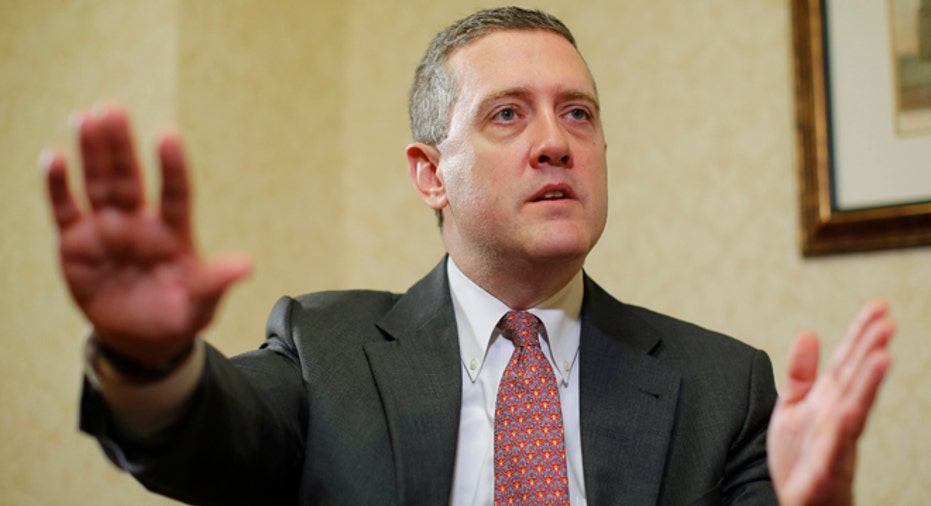Fed's Bullard Sticks to 1Q Rate Hike Forecast

A top Federal Reserve official stuck to his forecast of raising interest rates in the first quarter of next year, with rebounding inflation, strong jobs data and lower oil prices propelling a strengthening U.S. economy.
Just last month, St. Louis Fed President James Bullard suggested the central bank pause its bond-buying program, as inflation expectations were declining.
But those expectations have rebounded since mid-October, with investors recognizing strong U.S. economic data, Bullard said here on Friday.
Bullard, who does not have a vote this year on the Fed's policy-setting committee, said he expects inflation to head toward the Fed's 2 percent goal in the second half of this year, and exceed that goal next year.
"While a low inflation rate may suggest a somewhat lower-than-normal policy rate, that effect is not large enough to justify remaining at the zero lower bound," Bullard said in prepared remarks at a St. Louis Chamber of Commerce event.
The Fed has kept interest rates near zero since December 2008 to stimulate the economy following the financial crisis.
Bullard added that he does not see wage increases as a key factor in the Fed's current calculation of inflation pressures, calling it a lagging indicator.
Bullard, a policy hawk who said on Friday that economic models show the Fed should have moved rates higher a year ago, said part of the inflation expectation decline prior to mid-October was stoked by global markets betting on a weakening Europe and a global recession.
But Bullard, who began his career at the St. Louis Fed in 1990, said concerns about Europe's weakening economy were overstated.
"I thought what was happening was that markets were pricing in a global recession. If global markets are trying to tell you something, maybe you should listen," he told reporters after his remarks on Friday. "That whole story kind of faded. Stronger data in the U.S. convinced markets we weren't headed for a global recession."
When asked what his concerns were, Bullard cited asset price bubbles, adding that the Fed's ability to deflate such bubbles was untested.
Bullard said that while the U.S. economy is on strong footing, the specter of Japan, with its sustained low interest rates, deflation, and sluggish growth, always looms.
"A policy maker does not want to get into that situation," he said. (Reporting by Michael Flaherty; Editing by Meredith Mazzilli)



















